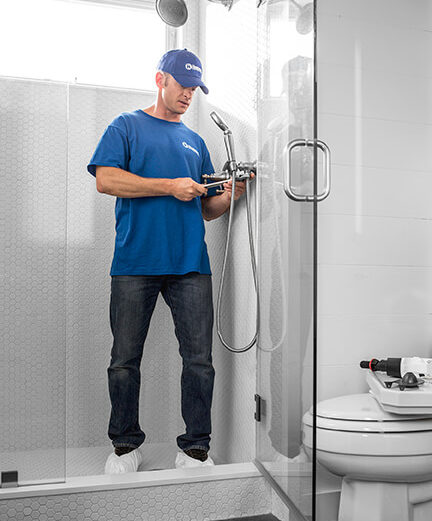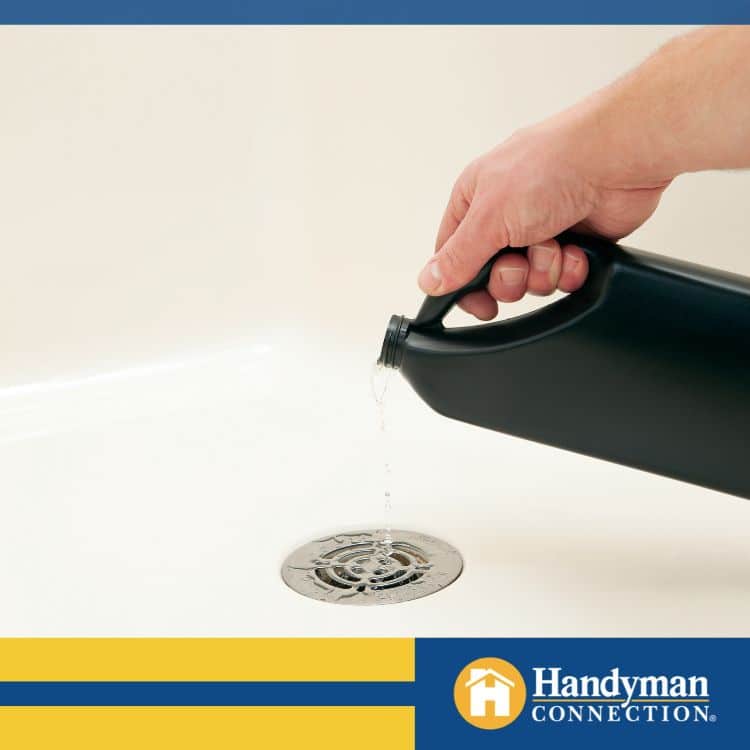We offer a wide range of services for that fresh look, or just maintenance or updates to keep your home functioning and safe. Regardless of the size of the job, we have a craftsman that can tackle it. We offer a wide range of services for that fresh look, or just maintenance or updates to keep your home functioning and safe. Regardless of the size of the job, we have a craftsman that can tackle it.

Plumbing / January 10, 2023

It can be eerie when you unplug the kitchen sink and the water doesn’t drain away. It likely means that there is a clog somewhere along the line. What should you do in a situation like this? Should you call plumbing services in Vancouver, or should you attempt to deal with it yourself? How can you stop this from happening? Here are some important things you need to know about what causes kitchen sink clogs, how to prevent them, and what to do if they do occur.
In many cases, the cause of a kitchen sink clog is food scraps that are too large to go down the drain and get stuck. If you have a garbage disposal, it can chop these scraps into smaller pieces that wash away more easily. However, the garbage disposal cannot handle everything. Eggshells, fruit pits, and bones are too hard and can damage the machinery, while stringy foods like celery can get wrapped around the blades.
Some foods are likely to cause clogs even after going through the garbage disposal because they expand when wet. These foods include the following starches:
Coffee grounds also expand in water and should be disposed of in the trash rather than washed down the sink.
Fats such as oil or grease are liquid at high temperatures but congeal as they cool. If you pour liquid grease down the sink, it can harden and stick to the inside of the pipes, causing clogs that are difficult to remove. Some soaps also have fats in them that can react to hard water to form clogs.
The problem often starts at your sink, but not always. Tree roots grow in the direction of water, and if there are cracks in your pipes, they could work their way inside, blocking the pipe as they grow larger.
A good start to preventing kitchen sink clogs is to avoid putting anything down the drain that is likely to cause them. You can also keep your pipes clean and get rid of many of the residues that build up in there by pouring equal measures of white vinegar and baking soda down the drain, one-half cup each.
Be careful using the garbage disposal. Put only appropriate food scraps down there, and only a little at a time. You could overload the disposal’s motor if you try to put too much down at once. Whenever you run the garbage disposal, have the faucet on. The running water flushes away the remaining food particles.
The first thing to do if you have a clogged kitchen sink is to try to find out where it is coming from. If you have a garbage disposal, try running it to get rid of any remaining scraps. If it doesn’t turn on, it could mean that the motor overloaded, in which case you should reset the circuit breaker.
If the problem doesn’t seem to be with the garbage disposal, or if you don’t have one, you can try clearing the trap. The trap is the U-shaped bend in the pipe under the sink. When you remove it, water may pour out, so put a bucket underneath to catch the water before you attempt to remove it. You can remove it by loosening the fasteners and, if there is anything stuck there, you can use a wire, such as a bent coat hanger, to push it out.
Plumbing pipes are delicate, and attempting to fix them when you don’t know what you are doing could lead to further damage. Rather than risk that, call Handyman Connection to have a plumber assess and resolve the situation.